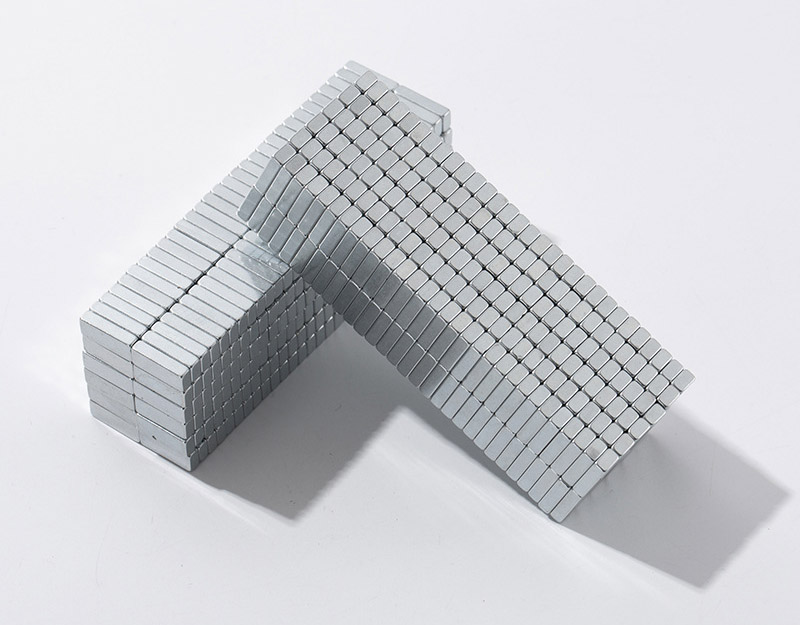There are many, many questions about magnet demagnetization, today's article is mainly to answer the netizen's concern about whether the magnet will demagnetize when it exceeds 80 degrees Celsius.
The magnetism of a magnet comes from the magnetic material inside it, and at high temperatures, the structure of the magnetic domains in the magnetic material will be disturbed by heat, resulting in a weakening or even a complete loss of magnetism.
High quality galvanized neodymium magnet block

There are 2 key temperature parameters to understand, the first is the maximum operating temperature, which refers to the highest temperature at which the magnet can maintain stable performance over a long period of time. The other is the Curie temperature, which refers to the temperature at which there is a complete loss of magnetism, beyond which the magnet loses its permanent magnetism.
Whether the magnet will demagnetize at 80°C depends on the magnet material
First of all, neodymium magnets, ordinary grade, such as N35, maximum working temperature of 80 ℃, once beyond this temperature, the magnetic properties will be significantly reduced.
Ceramic ferrite magnets, maximum working temperature up to 300 ℃, cost-effective, but the magnetic properties are weak.
As for samarium cobalt magnets and alnico magnets, the temperature resistance is more excellent.
Therefore, not all magnets will demagnetize above 80°C. NdFeB magnets regular grade will demagnetize significantly after 80°C, but high temperature models can withstand higher temperatures. Samarium cobalt magnets and ferrite magnets have strong high temperature resistance and are suitable for high temperature environments.
If there are still questions and you need help feel free to contact us.
Perhaps you'd also like to read;
At what temperature do ferrite magnets begin to demagnetize?
Neodymium Working Temperature Range (Rating)
 China Neodymium And Ferrite Magnets Manufacturer & Supplier
China Neodymium And Ferrite Magnets Manufacturer & Supplier 


